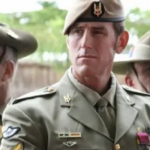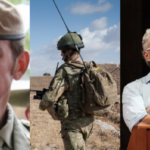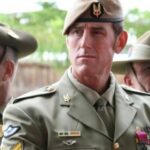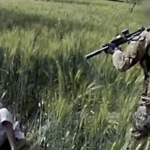Ben Roberts-Smith Appeals Being Branded a War Criminal
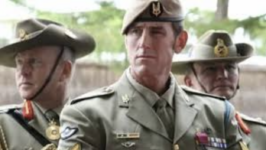
Ben Roberts-Smith’s legal team has filed an appeal against the findings of the Federal Court which determined that he was not defamed by the The Sydney Morning Herald, The Age and The Canberra Times, who accused him of committing international war crimes during his time as a member of the Special Air Service in Afghanistan.
Accused of being a war criminal
In a nutshell, Australia’s most decorated living soldier commenced defamation proceedings against the newspapers after they accused him in a series of articles published in 2018 of murdering civilians, including kicking a handcuffed man off a cliff, and ordering subordinates to kill civilians, in so-called “blooding” practices.
The Federal Court’s findings
The Federal Court ultimately found that Roberts Smith was responsible for at least four murders during his service in Afghanistan.
Outside court, one of the journalist who reported on the case, Nick McKenzie, described the disgraced soldier as “a bully”, “a liar” and “a war criminal”.
Since that time, the Office of the Special Investigator (OSI) has confirmed that several Australian soldiers are currently under investigation for alleged war crimes in Afghanistan.
The OSI was established to investigate such allegations following the Brereton Report, which was published in 2020.
It works closely with the Australian Federal Police which can bring charges under the Criminal Code Act for a range of war crimes.
Only one Australian soldier has so far been prosecuted for war crimes in Afghanistan.
The soldier, SAS veteran Oliver Schulz, was captured on footage taken from his colleague’s helmet camera in 2012 which shows an SAS dog mauling an unarmed civilian who is cowering on his knees in a field, before Schulz executes him by shooting him in the head.
Roberts Smith has always maintained his innocence, saying he did not break the rules of war.
Appealing findings relating to murder
Now, his legal team has filed an appeal against the Federal Court’s 700 page judgement.
The appeal contests each of finding of murder, in detail, contending that:
- Justice Anthony Besanko ‘selected’ the evidence given by Person 41 in relation to allegations that Roberts Smith ordered a subordinate soldier under his command to execute an elderly prisoner found hiding in a tunnel at a compound known as Whiskey 108, in the southern Afghan village of Kakarak in 2009. The appeal argues that Person 41 should not have been considered an independent or reliable witness, and that his evidence was uncorroborated.
- Justice Besanko was not correct in finding Roberts Smith murdered a disabled man with a prosthetic leg because the finding “did not take into account the possibility that the witnesses’ memory had become distorted or polluted over time because of intervening events”.
- With regard to the killing of Ali Jan, a father of six, who the court heard was handcuffed and kicked of a cliff by Roberts-Smith and then dragged to a cornfield by Australian soldiers, where he was shot dead on the orders of Roberts-Smith, the appeal argues that Justice Besanko placed too great a weight on the evidence of the Afghan villagers as supportive of Person 4’s testimony, when their accounts had “material inconsistency”.
- The appeal also contends judicial error in a murder at Chinartu village in Afghanistan. Justice Besanko found that Roberts Smith ordered a member of an Afghan partner force, the Wakunish, to murder a prisoner. The appeal states that Justice Besanko “engaged in speculation” over the discovery of a hidden stockpile of weapons, which the court heard were considered to be the motivation for killing the prisoner.
Roberts Smith’s appeal will be heard by the full bench of the Federal Court and it will be some time before it is heard. Because of the complexity of the case – the original trial ran for 100 days, and Justice Besanko spent the best part of 11 months pouring over evidence before delivering his final judgment last month – the appeal itself is also likely to be a relatively long hearing.
Appeal will be defended
The Nine Network has already stated its intention to defend any appeal, releasing a statement saying: “We believe the Federal Court’s judgment is comprehensive and categorical…. We will always stand up for journalism that is in the public interest.”
However the right to appeal a court’s decision is an important part of the justice process.
In recent days, Ben Roberts Smith has assured the media involved that he will pay for the legal costs of the news outlets if his appeals are unsuccessful.
Staggering legal bills
The cost of the case has been staggering – with some estimates putting legal fees in the tens of millions of dollars.
Roberts-Smith has been largely funded by Seven Network and Kerry Stokes’ private firm, Australian Capital Equity. But there are still some questions around who will pay the bill.
While Roberts-Smith has accepted he should pay on an indemnity basis (typically this includes a significant percentage of the costs) from March 2020 onwards, a dispute remains about who is responsible for costs prior to that time.


